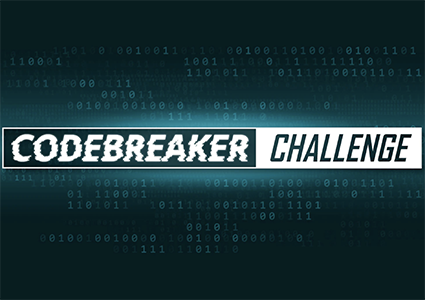Campus News
UC Santa Cruz earns a top three spot at national codebreaker challenge
More than 440 universities competed in the 2022 National Security Agency (NSA) Codebreaker Challenge, where students are challenged to expand their reverse engineering and other skills necessary for careers in cybersecurity.

Through the combined efforts of more than 80 students, advised by Associate Professor of Computer Science and Engineering Alvaro Cardenas, UC Santa Cruz placed third out of 445 universities at the 2022 National Security Agency (NSA) Codebreaker Challenge.
The annual competition is centered around a realistic cybersecurity scenario, where students must carry out a series of reverse engineering, cybersecurity-related tasks to earn points. While students compete individually, points are combined with other student participants from their university, ranking the schools based on total points accumulated. UCSC achieved a total score of 79,011 in the competition, which concluded on December 9.
In this year’s scenario, participants took on the role of NSA employees, providing technical assistance to the FBI on a ransomware incident investigation. Over a series of nine tasks, each with an increasing level of difficulty, participants investigated the cyber attack, discovered the tools and techniques used during the attack, exposed the ransomware, and recovered the compromised files.
Eight of the UCSC students who participated completed all nine challenge tasks, earning NSA certificates. Those students are Jeffrey Zhang, Brian Mak, Steven Mak, Nancy Lau, Iakov Taranenko, Jackson Kohls, Maxwell Kunes, and Victor Ho.
The competition is structured to give students the opportunity to gain and apply cybersecurity skills such as computer forensics, reverse engineering, software development, and web analysis.
“There are so many different approaches to cybersecurity. In addition to computer forensics, reverse engineering, and the need to use different programs and tools, you also have to apply deductive reasoning and critical thinking skills. All of those aspects are very important to solving cyber attacks, ” said Iakov Taranenko, a first-year proposed computer engineering major who began competing in cybersecurity competitions while in high school.
As the cybersecurity industry continues to expand, so does student interest in cybersecurity research and opportunities at UC Santa Cruz. To meet the growing interest, Baskin Engineering students Tarenenko and Nancy Lau have formed the UCSC Security Club. Their goal is to build and support a community of students who are interested in cyber and physical systems security.
Students from all majors are welcome, and do not need to have prior cybersecurity experience to join. Club meetings will begin winter quarter 2023 with a plan to frequently host lectures and workshops that revolve around learning and applying cyber and physical systems security concepts.